‘Many persons with disabilities feel that they exist without belonging and without participating. Much still prevents them from being fully enfranchised. Our concern should be … to ensure their “active participation” in the civil and ecclesial community.’
Pope Francis, Fratelli Tutti, 2020 #98
Pastoral and spiritual care forms an important part of a holistic approach to accompanying people who face significant life challenges. Very little attention, however, is often paid to the spiritual needs of people with disability – despite this being a vitally important aspect of the lives and wellbeing of many people.
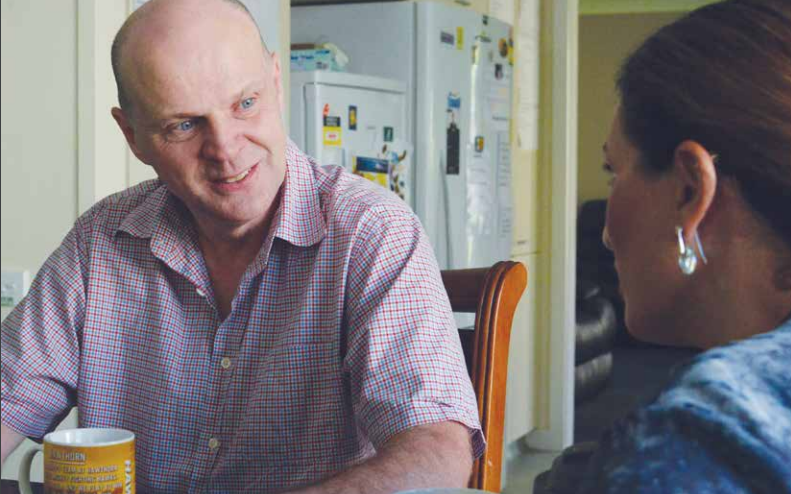
In a recent forum convened by CSSV and St John of God Accord, a major provider of services and accommodation to people living with a disability, an expert panel unpacked the role and impact of pastoral and spiritual care to promote and advance recognition of the inherent dignity of persons living with a disability.
Forum panellists Joshua Lourensz, Executive Director of CSSV; Winsome Clark, psychology researcher with University of Divinity; and Lisa Evans, CEO of St John of God Accord, shared the view that pastoral and spiritual care is vital for everyone, and ‘common to us all’.
In opening, Josh said, ‘It’s important to move away from just “case management” toward a holistic understanding of people, what they need and where they want to be in their lives.’
‘Pastoral and spiritual care is for all of us, it’s common to us all, whether speaking from a social services perspective, or from a health or education perspective. This is for everyone.
Josh Lourensz
‘It’s important to talk about the “holes” within the disability services space because it can become very “us and them” – we provide a service to consumers who are disabled, rather than embracing the view that society is richer for having people with different impediments working and living life together. We need to appreciate that we are all interdependent and whole persons.
‘In my view, the importance of pastoral and spiritual care is undervalued, broadly. The sheer scale of work of immediate work being done by social services often means that spiritual and pastoral care might be seen as an additional demand. There are distinct pressures to relegate pastoral and spiritual care to the background, but if we want to see the depth of issues that people experience, and try to work that together, we need to be concerned with the whole person and not just their presenting issues.’
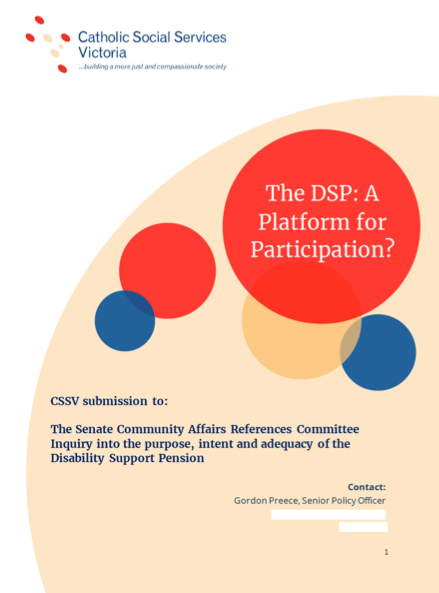
He said, ‘People with disability have limitations just like any of us. We’re all part of a community and can learn from each other. The interdependence can be enjoyed. We need mechanisms that appreciate and support the deep questions that we’re asking ourselves, that encourage us as people wanting to interact with others in an inter-dependant way.’
Josh referred to CSSV’s submission to the Senate Community Affairs References Committee Inquiry into the purpose, intent and adequacy of the Disability Support Pension outlining the underlying principles of Catholic Social Teaching, particularly promotion of the common good. ‘No society can flourish if other parts of society are missing out on their gifts,’ he said. Those with disabilities have to endure repeated tests even if their disability is permanent. This onus of suspicion does not treat the disabled with dignity. It also does not facilitate their full participation as people who have gifts to offer. ‘This is an important framework for pastoral and spiritual care, acknowledging that pastoral and spiritual care allows all of us to flourish.
‘CSSV tries to be a bridge – to advocate the full participation of all people in society, appreciating the dignity of each person, understanding that we’re all limited in some way and that we all have something to give. We’re all in the world together, trying to understand our spiritual, emotional, physical lives. This is a common journey for us all.’
Panellist Winsome Clark is a University of Divinity psychologist focussing on pastoral care to clients with intellectual disability and their carers. She has been researching the question, ‘What is the contribution of pastoral spiritual care to the spiritual well-being of the residents and carers in St John of God Healthcare homes?’
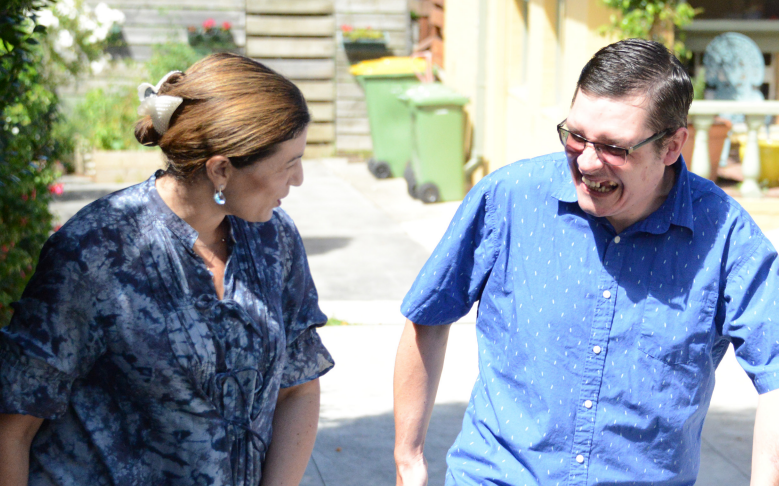
In researching ‘a road map through pastoral spiritual care in residential homes’, Winsome accompanied a pastoral carer, Tania-Rose, on the road two days a week over 14 weeks and interviewed several carers and managers.
‘The research aims to assist clients in the intellectual and disability residential setting to achieve spiritual health and well-being,’ said Winsome. ‘The research provides a road map, which tells us what we need to be aware of and what clients are dealing with.
She outlined the nature of pastoral and spiritual care as support and compassion, attentive and reflective listening, healing and guiding, person-centred ability for a carers to identify patient’s’s spiritual resources, while not imposing their own beliefs or values.
‘We all want residents to have spiritual health and well-being and opportunities to flourish,’ said Winsome. In desiring full flourishing for residents, she said, it’s important to remember that ‘those living with a disability are, like us, made in the image of God who has given them life’.
‘Their humanity rests on their capacity for relationship as much as ours; Their desires of the heart and spiritual needs are the same as ours; They have as much to give us as we to give them if we are prepared to engage with them and see them as persons with unique personalities, but need to remember these people are vulnerable.’
Winsome explored the relationship between the pastoral carer and resident saying, ‘it’s companioning, walking alongside someone in their life-long journey.’
‘Pastoral care practitioners make time to spend quietly with the resident discussing the issue that is weighing on their mind and heart. For some this is not just a job but a vocation. They go well beyond the call of duty. These carers will know the resident’s passions and loves, they’ll know what opens up their lives. … In a nutshell, they love these people.’
Winsome Clark, psychology researcher with University of Divinity
They are also a vehicle through which pastoral and spiritual care can be provided to residents searching for ‘connection to the transcendent, God, or something larger than ourselves’.
‘We all need meaning and purpose,’ said Winsome, ‘Residents ask: where will I be able to express myself? What talents do I have?’ We all need to belong, to have social supports and freedom and the ability to receive assistance and support when needed.’
‘Pastoral Care Practitioners assist in the fulfilment of spiritual needs. Our spirituality is when we can express the values that we hold and what is important for us. It’s the stuff that gets us out of bed in the morning. This is done through their spirituality and giving them time to share their deepest, hope, fears, joys.’
Winsome concluded, ‘When we have our basic needs met, when our spiritual needs are met through our spirituality – when we do all that – then we get feelings of love, joy, peace, hope and contentment. We also have self-esteem and identity.
‘When we have all of that, we have spiritual wellbeing, harmonious interconnectedness between self, others, environment, and an Ultimate Other/ the Transcendent. This leads, ideally, to flourishing. Winsome’s research is significant, particularly for those organisations that have developed policies and practices that facilitate and promote care for the ‘whole person’.
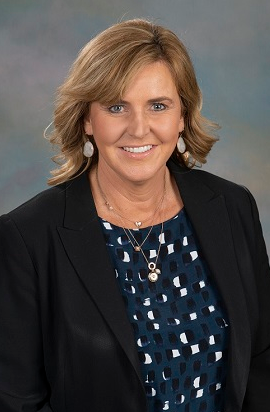
Lisa Evans, Chief Executive Officer of St John of God Accord (pictured left), supports this position whole-heartedly. As the final panelist, Lisa shared the impact of COVID-19 on the provision of services for people in intellectual and disability residential home settings and how pastoral care practitioners added a deeper dimension to the care on offer.
‘Cast your mind back to March 2019, we were running out of things in the supermarket, people were losing jobs, and there was enormous fear about what this all meant. We had to stop all services in March, hoping it would be for a few weeks, but we didn’t open them again until December 2019.
‘A lot of recreational activity places were closed – bowling, movies, getting nails done, riding on public transport – so we had to have a really great level of innovation to provide meaningful activities and support for our clients without bringing them into close contact. We had to find ways to still bring joy to these people each day – a life must be joyful in order to be lived well and hopeful.’
Some of the adaptations included assisting residents to grow vegetables in their own home, providing access to technology that allowed FaceTime in the homes and setting up telehealth appointments so that clients could be ‘met’ virtually. Online family gatherings, some from interstate and overseas, were regularly facilitated and virtual group therapy and music therapy sessions were held.
‘FaceTime was the gold nugget in our pastoral care service,’ said Lisa. ‘When Tania Rose was able to quadruple the people she saw through mobile technology, it allowed a deeper connection with our clients. And over that time, they shared personal stories with her.
‘COVID has been an incredible thing to navigate as a service, and it continues to change and challenge us. We’re learning to live with it in a different space but the impact of pastoral care in our service has been immense and so incredibly positive. It has been a point of difference for the people in our service. It’s a wonderful investment and our point of difference to others without pastoral care workers.’ Holistic pastoral care that sees God’s image shining through the person with disability makes a whole lot of difference.
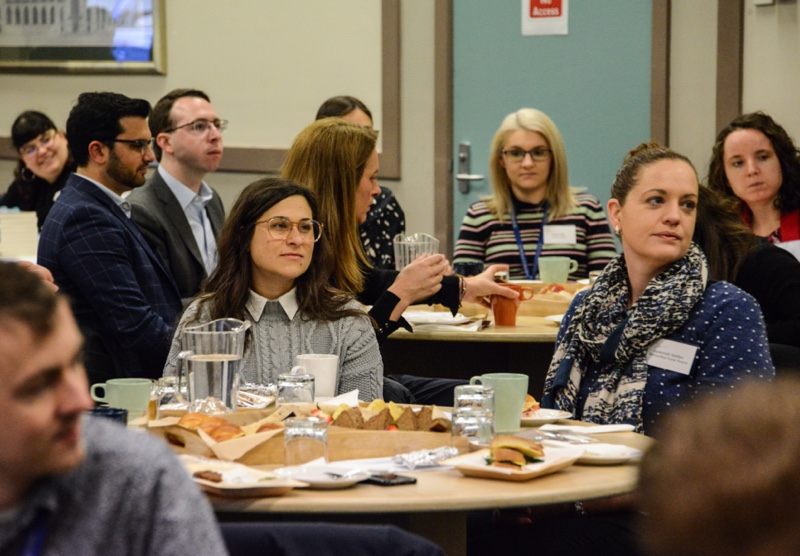
Join our mailing list
Keep up to date with latest news, information and upcoming events.
We respect your privacy, as outlined in our privacy policy.